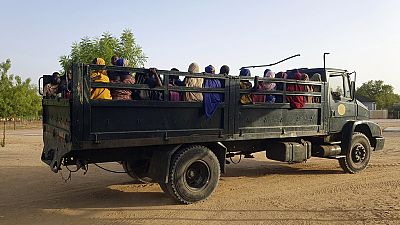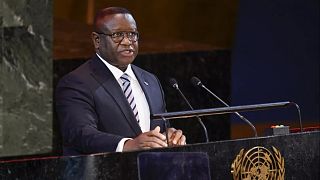Nigeria
Dozens of women and young girls have been unlawfully detained and abused in Nigerian military detention facilities after escaping captivity by Boko Haram extremists in the country’s northeast, Amnesty International said in a new report on Monday.
Some of the women were detained with their children for years because of their real or perceived association with the extremists, the report said. It cited 126 interviews, mostly with survivors, over the 14 years since the Islamic extremists launched their insurgency.
The report echoes past human rights concerns about the Nigerian military, which in the past has been accused of extrajudicial killings and illegal arrests in one of the world’s longest conflicts.
However, the report noted that prolonged and unlawful detentions have been less widespread in recent years.
Nigeria's army dismissed the report as “unsubstantiated” and reiterated that it has continued to improve on its human rights record and holds personnel to account.
The conflict has spilt over borders killed at least 35,000 people and displaced over 2 million. Women and young girls are often forcefully married or sexually abused in captivity.
But the conditions some women found themselves in after fleeing captivity were so “horrible” that some chose to return to Boko Haram, Niki Frederiek, crisis researcher with Amnesty International, said of the detention camps located in military facilities in Borno state.
At least 31 survivors interviewed said they were held illegally in the facilities, the report said, suggesting the practice had been more widespread.
“Some said soldiers insulted them, calling them ‘Boko Haram wives’ and accusing them of being responsible for killings. Several described beatings or abysmal conditions in detention, which amount to torture or other ill-treatment,” the report said.
“The Nigerian authorities must support these girls and young women as they fully reintegrate into society,” said Samira Daoud, Amnesty International’s regional director for West and Central Africa.













Go to video
In Kenya, 90% of packaged food needs health warning label under new rules
Go to video
Cameroon’s Tourism Minister joins presidential race as Biya’s silence fuels uncertainty
Go to video
INTERPOL seizes $65M in fake drugs, arrests 769 in largest-ever global crackdown
Go to video
Uganda's Museveni breaks African silence on Israel-Iran war
Go to video
Over 40 killed in attack on Sudanese hospital: WHO Chief condemns “Appalling” strike
Go to video
Angola’s Lourenço tells U.S : shift from aid to investment